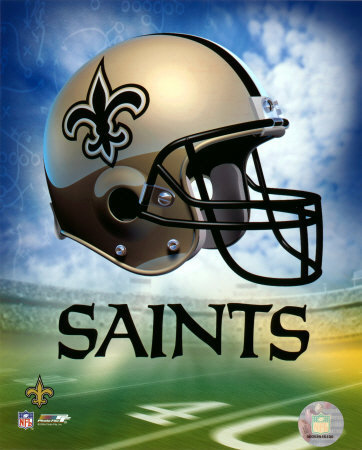Saints and Angels Standing Naked
By Dr. Daniel Durbin | 4/7/12 |A new debate has developed over the release of recordings purporting to show Gregg Williams pushing his players to attack the injuries of opposing players, presumably to injure them further and take them out of the game. The debate centers on the ethics of releasing the recordings.
The recordings were released by filmmaker Sean Pamphilon who recorded them while producing a documentary on retired Saints player Steve Gleason and his heroic fight with ALS. Gleason did not give final permission for release of the recordings and, as ESPN has noted, Pamphilon released the recordings on one of his promotional websites.
Predictably, many players and former players, on hearing the recordings, have noted that what Williams says in them is typical locker room talk. Players and coaches often discuss “testing the weaknesses” of opposing players.
Locker room conversation has always been a sort of protected speech in American culture. It has always been a “special” and “private” discourse to help players psyche themselves up for the violent confrontations of the game. What is said in the locker room supposedly stays in the locker room. As with Las Vegas, every word of that is a fantasy.
This entire dispute misses perhaps the single most important fact of life in 2012. Gregg Williams is discovering too late what any number of public figures have discovered over the last decade. There is no truly private discourse any more.

French sociologist and philosopher Jean Baudrillard once noted that, with the proliferation of technology and media, the distinction between a “private sphere” and a “public sphere” has broken down. There is no longer a private sphere. We are all, according to Baudrillard, caught up in a vast web of public communication.
No matter where you may be, if one or more of you be gathered together, the rest of the world is with you. Your smart phone insures that.
Smart phones, iPads and other devices that can record audio and video and immediately post them to the Internet have created a world in which anything that is said or done in any context may be removed from that context and placed into public discourse.
College professors know this and are deeply concerned by it. One of the central tenets of academic freedom is the opportunity to speak candidly on any subject within the classroom without fear of those conversations becoming public and causing potential censure or worse.
Yet, every professor in the United States knows that anything said or done within the classroom may immediately (and without their knowledge) be recorded, ripped from the context of the classroom and posted online. That fact can be paralyzing for academics whose entire livelihood is based on challenging often deeply held tenets of society in their search for knowledge.
The same is true for all those involved in sports. Locker rooms, stadiums, sidelines, clubhouses, even tee-ball diamonds are now public spaces in which actions may be recorded and seen around the world. The sheer excess of communication media have insured that fact.
The question of the ethics of publishing comments has dissolved in the sheer immediacy of media technology. When dozens, even hundreds of people in any conversation have a recording device on their hip, anything that is said is already presumptively public knowledge. Whatever the ethics involved, this is a truth everyone, public and private, is finding they must face.
A famous scene in the 1981 movie “Absence of Malice” portrays an innocent woman whose past indiscretions having been published in a Miami newspaper running from home to home in her bathrobe, grabbing up newspapers. The irony of the scene was that, of course, her small actions could not hold back the tidal wave of publicity that was to follow.
A Miami newspaper of the 1980s was a comparative puddle to the international flood of information that can be distributed in milliseconds in 2012. Kobe Bryant discovered this last year when he was caught by a television camera mouthing a homophobic slur. Gregg Williams is now discovering this, as the discussion of violence and bounties works its way through innumerable media platforms.
Whether they realize it or not, coaches, players, media figures, owners, even peanut vendors are no longer afforded a truly private space. It is a truism that you should not say in private anything you would not say in public. But, that truism is swift becoming meaningless. Whatever we say in private is said in public.
And all the athletes and coaches, from the New Orleans Saints to the Los Angeles Angels, from the Mark Cubans to the Sean Paytons, from the Kobe Bryants to the Bruce Jenners and Lamar Odoms stand naked before an international public. Often after the fact, they grasp quickly and a bit desperately at whatever towels are laying around to cover the parts they don’t want the public to see.

COMMENTS